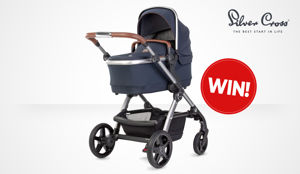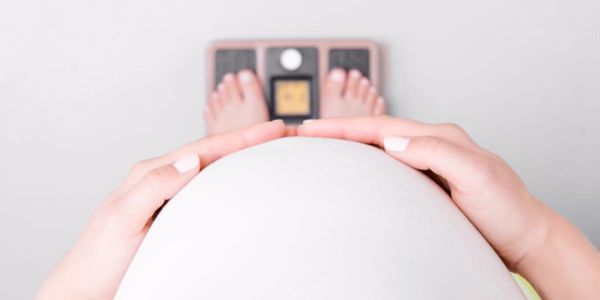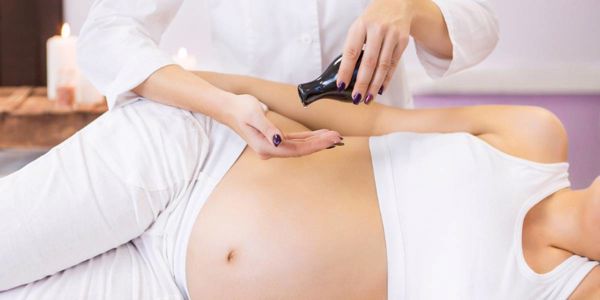Massage and the power of touch have been used throughout history to help aid relaxation, ease discomfort and improve the physical and mental wellbeing of pregnant women from the time of conception, through to labour and the postnatal period.
Whether women choose to self-massage, involve their partner or treat themselves to a massage from a therapist, Lesley Gilchrist, registered midwife and co-founder of My Expert Midwife explains how massage can help some common pregnancy challenges and outlines some important points to consider.
As well as feeling relaxed and soothed, massage in pregnancy can help relieve some common problems experienced in pregnancy including:
1. Neck and shoulder tension: Tension can build up in the neck and shoulders during pregnancy due to changes to your posture. Massage that focuses on the muscles at either side of the spine, the neck and the top of the shoulders, can help release tension and reduce stress throughout pregnancy and during labour.
2. Constipation: Constipation is common throughout pregnancy due to an increase in progesterone which relaxes the muscle tone of the bowel. Massaging the abdomen, around the bump, in a clockwise direction can help stimulate a sluggish bowel.
3. Headaches: It’s not uncommon to suffer with headaches during pregnancy. They can be caused by tension, stress and hormonal changes. Head massage, focusing on the area around the temples and forehead can help relieve these symptoms and aid relaxation; the fingertips can also be used to massage the scalp.
4. Swollen legs and ankles: Swollen and puffy ankles and calves are common in the later stages of pregnancy. Massaging the ankles and lower legs, using long, open-handed strokes from the ankle towards the heart can help increase circulation, reduce swelling and improve movement.
5. Swollen and stiff hands: Hands can be prone to swelling, particularly during the later stages of pregnancy. This can cause stiffness and changes in grip. Massage can help by improving circulation and mobilising the joints. On the palm, work from the fingers, towards the wrist with firm or gentle pressure.
6. Backache: Backache in pregnancy is common and mostly due to changes in posture brought on by your growing bump, and by the hormone progesterone relaxing your muscles. As well as relieving aches and pains, massage helps to produce feel-good hormones, which relax your mind and reduce feelings of stress. Avoid the bony spine area and focus attention on the muscles and tissues at either side of the spine.
What precautions should be taken?
- Some essential oils should be avoided during pregnancy - Cinnamon, clove and melissa are known to act as skin irritants. Marjoram may cause vaginal bleeding, fennel may interact with oestrogen, and angelica and clary sage can stimulate contractions. There is no clear consensus on how the essential oils of aniseed, basil, birch, cedarwood, hyssop, jasmine, juniper, mugwort, oregano, pine, rosemary and sage affect pregnant women, so it is best to avoid all of them throughout pregnancy. People with allergies should also check that the oil or product they are using in massage don’t contain the allergens that they are sensitive to.
- Take care around the bump area and only apply or allow gentle strokes on your abdomen.
- Pregnancy increases the risk of deep vein thrombosis (DVT) so avoid deep tissue massage in the legs and upper arms. Gentle, open-handed, upward strokes (toward the heart) to these areas are considered safe where there are no varicose veins, inflammation or other possible signs of a DVT.
- If your pregnancy is considered high risk, consult with your obstetrician before being massaged. There are no scientifically agreed guidelines, so each case should be considered on an individual basis.
- If you have an auto-immune disease, avoid massage during flare-ups or inflammatory stages of the condition, as it may cause pain and aggravation.
- Women with diabetes who are treated with insulin should avoid being massaged over a recent injection site, as this may accelerate insulin uptake, causing an imbalance in blood sugar levels. Some women with diabetes may experience loss of sensation (neuropathy), leaving them unable to ascertain whether pressure during a massage is too deep.
For more information and how-to videos for massage for pregnancy, labour and postnatal recovery, please visit https://myexpertmidwife.com/pages/how-to-massage-safely-in-pregnancy






